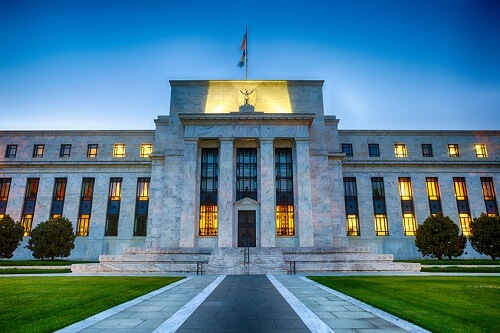Observers break down the possible impacts of the U.S. Federal Reserve’s rate hike

The possible impacts of the U.S. Federal Reserve’s decision on March 15 (Wednesday) to raise its key interest rate from 0.75 per cent to 1 per cent should not be underestimated, especially since it’s the second such increase since December.
A Global News analysis noted that the impact of the hike should be seen through the lens of Canada’s key interest rate, which has remained static at 0.5 per cent since July 2015.
BMO chief economist Douglas Porter argued that the hike might prove to be the beginning of the end for Canada’s long honeymoon with rock-bottom interest rates, as the Fed’s decision has increased the chance that the Bank of Canada’s next step will be to increase rates—possibly in 2018.
Another potential effect of the Fed’s move is a larger spread between 5-year fixed-rate and 5-year variable-rate mortgages, since the hike could result in higher rates for fixed-rate mortgage products in Canada.
“Fixed-rate mortgages will likely rise 0.20 to 0.25 of a percentage point,” RateHub co-founder and CanWise Financial president James Laird said, adding that this would lead to the spread between the two products increasing to over 1 per cent.
Such a development could lead to more Canadians going for variable-rate mortgages.
“Any consumer who can handle the increased risk exposure of a variable rate should have a serious look at it,” Laird said, but emphasized that the resulting increases in fixed-rate mortgages would be “another challenge for first-time home buyers to enter the market after tighter federal mortgage rules were introduced last fall.”
Related stories:
RateHub co-founder warns against impact of U.S. Fed rate hike
Mortgage group calls for pause to housing rule changes
A Global News analysis noted that the impact of the hike should be seen through the lens of Canada’s key interest rate, which has remained static at 0.5 per cent since July 2015.
BMO chief economist Douglas Porter argued that the hike might prove to be the beginning of the end for Canada’s long honeymoon with rock-bottom interest rates, as the Fed’s decision has increased the chance that the Bank of Canada’s next step will be to increase rates—possibly in 2018.
Another potential effect of the Fed’s move is a larger spread between 5-year fixed-rate and 5-year variable-rate mortgages, since the hike could result in higher rates for fixed-rate mortgage products in Canada.
“Fixed-rate mortgages will likely rise 0.20 to 0.25 of a percentage point,” RateHub co-founder and CanWise Financial president James Laird said, adding that this would lead to the spread between the two products increasing to over 1 per cent.
Such a development could lead to more Canadians going for variable-rate mortgages.
“Any consumer who can handle the increased risk exposure of a variable rate should have a serious look at it,” Laird said, but emphasized that the resulting increases in fixed-rate mortgages would be “another challenge for first-time home buyers to enter the market after tighter federal mortgage rules were introduced last fall.”
Related stories:
RateHub co-founder warns against impact of U.S. Fed rate hike
Mortgage group calls for pause to housing rule changes



